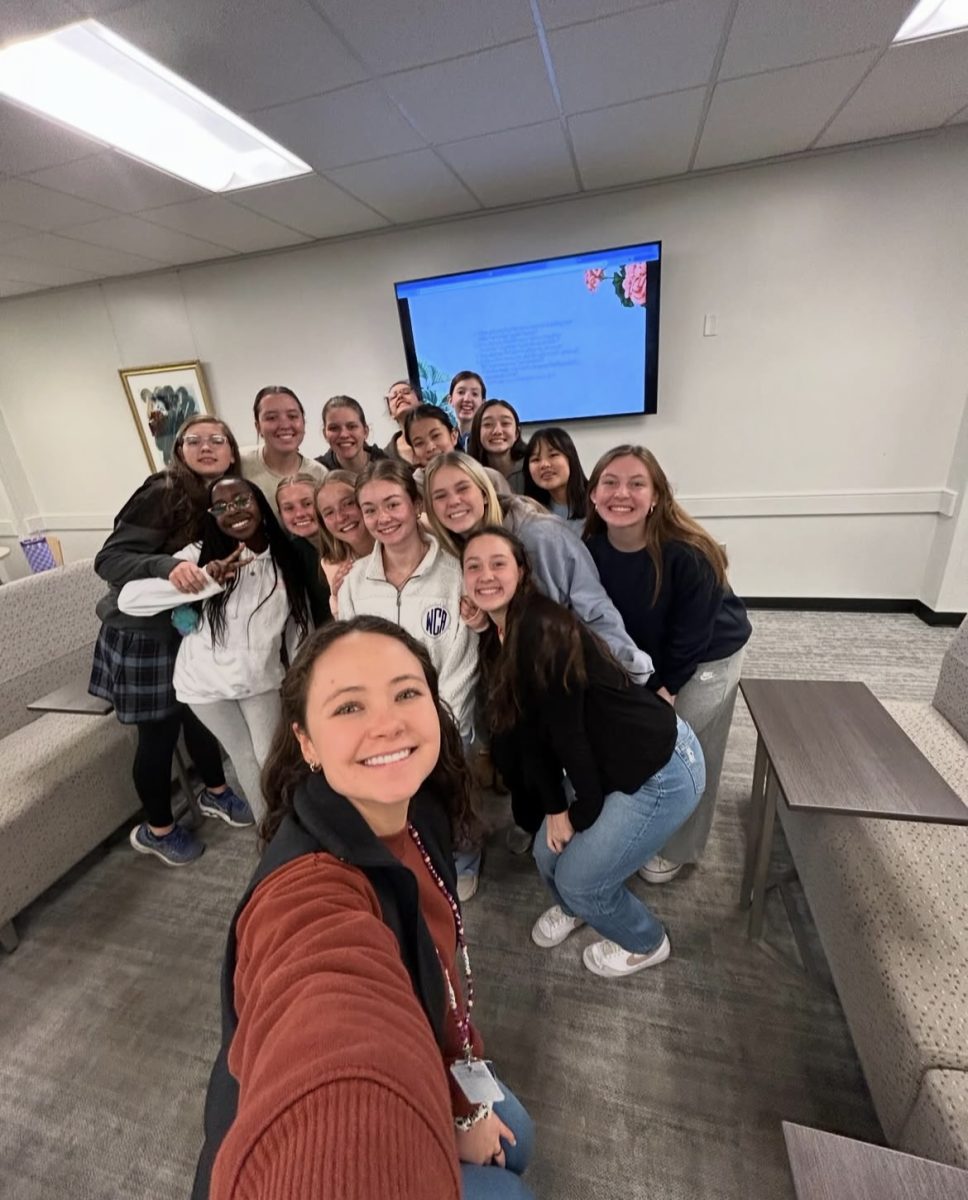Strange combinations are seen in many places in the world; bacon ice cream, candy coated bugs, and peanut butter with pickles spark the interest of inquisitive individuals. However, just because they sound daring and outlandish doesn’t mean that they will sell. L.B. Graham, upper school Bible teacher, has just written “The Raft, the River, and the Robot” which combines the future with inspiration from the well-known story, “The Adventures of Huckleberry Finn” in an unexpected pair.
A new fad has begun in our society where we are interested in mixing sci-fi elements into the unexpected, whether that is vampires in love stories or zombies in comedies. Graham has also noticed the popular trend of incorporating them into more classical or historical settings.
“Twain was an inspiration, but there’s a whole world of stories being created now that combines classic literature or history with more fantastical elements, whether it is adding Zombies to ‘Pride and Prejudice’ or having Lincoln be a vampire hunter or putting gladiatorial games in the distant future. So, mixing Twain’s famous journey of discovery on the Mississippi with an strange and distant future was probably also inspired, to some degree, by that trend,” said Graham.
The science fiction book tells the story of Jim, a young boy, who travels down the Mississippi river on account of his father’s vague dying words.
While the book does incorporate references to “Huck Finn,” it is completely unique. Graham enjoyed putting together his imaginative story, while loosely basing it on one of his “favorite American novels.”
“It was fun to create a story that is original and unique in its own right and then find ways to pay homage to Huck and his adventures. It was also fun to incorporate places from around St. Louis into the novel, since Jim’s journey starts, geographically, not far from here,” said Graham.
Aside from “The Raft, the River, and the Robot,” Graham has written many more unexpected stories. He enjoys to write fantasy books with components that readers wouldn’t expect.
“Well, so far I’ve written a five volume fantasy series about a world with golden dragons and giants and enormous, talking bears, a crime novel about an FBI agent running from his past but gets pulled into a murder investigation in a small town, and a dystopian future where most people live in cities in the air called hives and a boy goes on a dangerous trip by raft with a robot—I guess you could say everything I write about is a little bizarre” said Graham.
The way in which Graham writes his books sets him apart from most authors; where most authors like to have a new conflict in every chapter, Graham likes to deliberately pace the story.
“I like to take my time, building the story and the characters to a serious climax. So, with my first series, many people talked about the beginning being slow but the end being great, which I understand, but I think the two actually go together. I like to set up the story and the ending, and I often start doing that right from the beginning,” said Graham.
However, just because he likes to develop his characters thoroughly doesn’t mean his writing style is a bore.
“I like action well enough, but character usually trumps action for me,” said Graham.
As a published author, aspiring writers can learn much from Graham. He strongly recommends to never stop reading, writing, and practicing.
“You need to expose yourself to many different authors and styles. See how others do this thing you want to do. Learn what you like in a storyteller and why. And, of course, practice… Few people actually practice writing, and yet, writing is like anything else. It is hard to become really good at it unless you practice,” said Graham.
Now that he has had a lot of practice, Graham’s pre-writing process is a bit shorter. Starting with an idea, he branches out and forms a sort of mental outline.
“I get an idea from ‘somewhere’—who knows just exactly how the imagination works—and after living with the idea for a while, I might start brainstorming what a novel based on that idea would look like. Usually, only after I have a sense of the ‘big picture’ of the story, I’ll start writing it,” said Graham.









